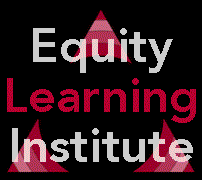
|
|
|
|
an EdChange project by Paul C. Gorski
|




|
Equity and Justice Awareness Quiz
This activity requires 20-30 minutes. Purpose: The Equity Quiz illustrates how our perceptions of reality, and the "facts" we are taught through media, the education system, and other sources of information and knowledge, can be limited in depth or simply wrong. Students take a multiple choice quiz with questions relating to racism, sexism, heterosexism, economic injustice, and related issues, then discuss the correct answers and their own misperceptions. Preparation: Distribute copies of the Quiz in PDF Format. Print a copy of the Answer Key in PDF Format for yourself. Instructions: Ask participants to answer the quiz questions to the best of their abilities. Provide five or six minutes. After everyone has completed the quiz, follow these steps:
Facilitator Notes: There may be some temptation to process each question separately. I strongly suggest going through all the questions and answers first, as it can be very powerful for someone to be reminded over and over how little they know about these issues in a short span of time. It will also be effective if you take the quiz beforehand and share how you did before polling the students. Some students may want to challenge particular questions or how they are phrased. This is a common defensive tactic individuals use to relieve themselves of dealing with the actual content of the quiz. It will be important not to feed into their defensiveness, but instead to affirm their critique. Explain that part of the purpose of the quiz is to learn to be more critical about all information we hear or read, and the information from this quiz is no different. (Remember, most participants will be fairly embarrassed of their score on the quiz, so the building-back-up process is important to the success of this activity.) |